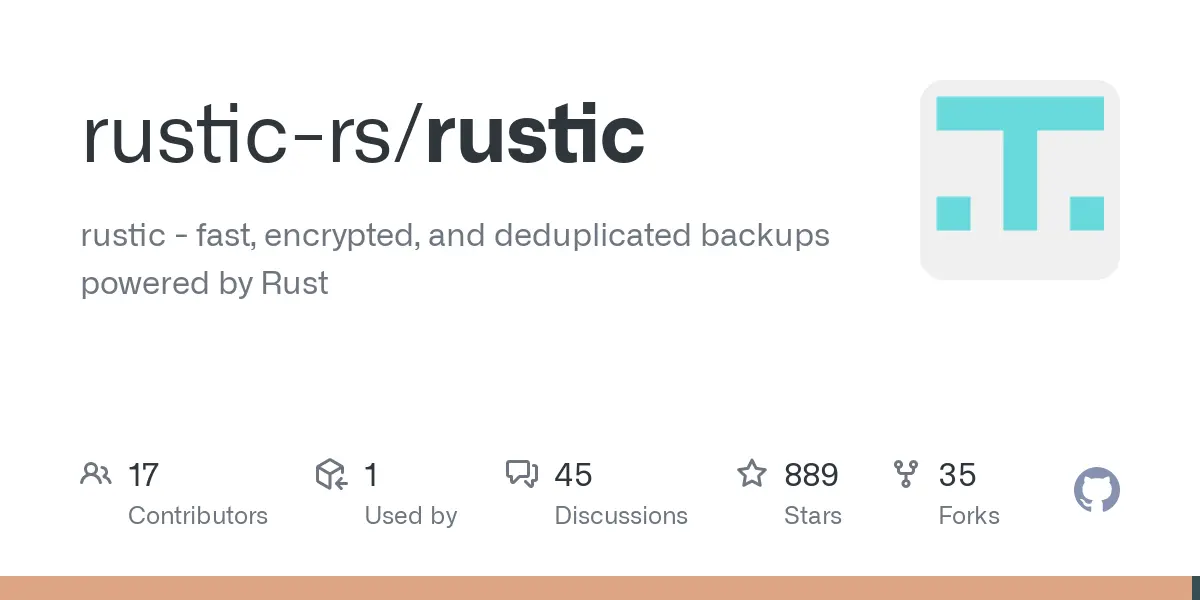- cross-posted to:
- rust@programming.dev
- cross-posted to:
- rust@programming.dev
Hey, you probably know about restic and borg for backups. They are pretty mature and very commonly used.
Rustic is a fully compatible reimplementation of restic in Rust and they do seem to have implemented a few improvements over restic. The developer even used to be a contributor on restic.
Is anyone here using it already? It looks super promising but I’d love to hear your opinion!



What is the advantage of using this over restic?
They have a page in the repo describing some advantages https://github.com/rustic-rs/rustic/blob/main/docs/comparison-restic.md
It sounds like they have some nice improvements, but I wonder why they didn’t contribute them back to the original restic project.
I also wouldn’t rely on an immature piece of software to handle backups - you want to avoid as many risk factors as possible with backups, since when you need to restore you really need it to work.
FYI, you formated your link wrong, it should be
[here](https://github.com/rustic-rs/rustic/blob/main/docs/comparison-restic.md)I can never remember the order and I’m using Wefwef which doesn’t offer markdown insert. Thanks :)
The way I remember the order is that the parentheses around the link would make grammatical sense outside of markdown (the goal of markdown is to still be fully readable even when looking at the raw source).
For example if I were posting on a forum that didn’t have markdown support which one of these would make more sense:
You can find that on this lemmy instance (https://lemmy.world).You can find that on (this lemmy instance) https://lemmy.world.Option 2 makes no sense grammatically. Then you just need to use the square brackets (which rarely show up in non-markdown text) to denote the link range.
Alternatively, if you still have a hard time remembering the order, you can use reference-style links which make it even more readable outside of markdown rendered contexts (note that there are no parentheses in this version, nothing to get confused):
[Here is a link][1] and [here is another link][2]. [1]: http://example.org [2]: http://example.comLooks like the rust-cult is at it again rewriting existing stuff for no gain but pushing rust on others.
A lot of the time, rust rewrites are more for devs, than users. Rust code is just easier to maintain (in the long-run 😉) and harder to make buggy. But some times the apps do just run faster when compiled with Rust.
Is it that much better than Go? Seems like the original restic was written in Go which afaik is pretty similar performance and syntax wise.
Go has its fair share of design problems and is not as memory efficient due to its garbage collector. Also it will probably always be linked to Google in some way.
Use
fdinstead offind, orrginstead ofgrepand tell me there’s no gain. The speed increase alone is astounding, and beyond worth it.Oh shit, will definitely be trying this out. I tend to make wildly overzealous
findsearches